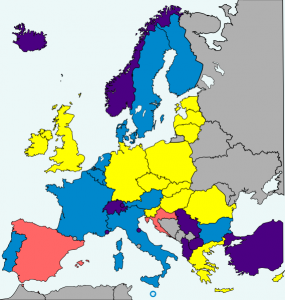The Year of the Unitary Patent?
 On Friday, February 10th, Italy has ratified the Unified Patent Court (UPC) agreement.
On Friday, February 10th, Italy has ratified the Unified Patent Court (UPC) agreement.
As of now, the deal has been signed by 12 countries including France. As we previously wrote, approvals from 13 countries including the UK, France and Germany are needed for the UPC to come to fruition. Germany has said that they will ratify the agreement, provided so does the UK.
After the Brexit vote in June 2016, strong doubts were raised regarding the future of the UPC. However, in November 2016, the British minister for Intellectual Property, Baroness Neville-Rolfe reiterated the UK’s commitment to the UPC and the Unitary Patent. She then stepped down in December 2016, prompting questions on whether her assurances would be honored by her successor as IP Minister, Jo Johnson. Mr. Johnson is the younger brother of the UK’s new Foreign Secretary, former mayor of London and a staunch Brexit supporter Boris Johnson. When asked on his stance regarding the UPC, Mr. Johnson claimed that it may form part of the wider Brexit negotiations.
Meanwhile, the UPC committee has announced that the court will start operations in December 2017. Stellbrink & Partner will keep you updated on the status of the Unitary Patent in these tumultuous times.



